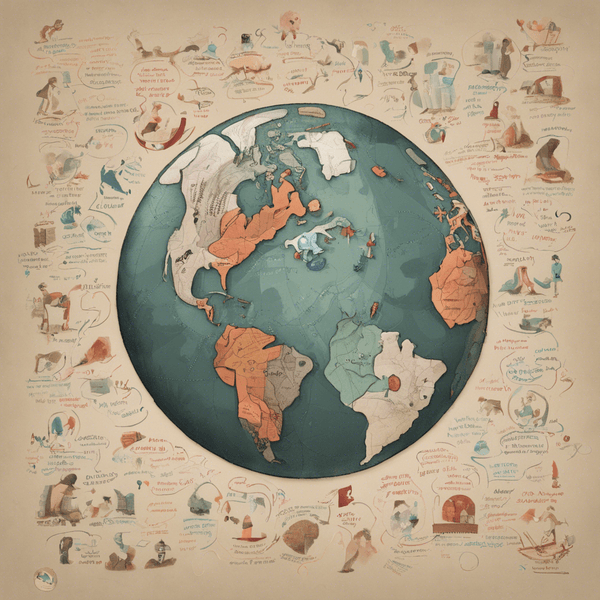Aldous Huxley was the son of Leonard Huxley, a schoolmaster, and Julia Arnold who also worked in a school. He grew up in England, was educated at Oxford, and was a writer, philosopher and a Universalist. Universalism is a form of religion in which people believe that no matter how reprehensible someone behaved on earth or how different we may be, we all become one with God when we die. His religiosity motivated a lot of his dystopian/utopian novels, most notably among them, "Brave New World" written in 1931.
BNW is a dystopian novel set in a future London. The year is 632 A.F. or After Ford developed the model T. Ford’s industrious nature. His ability to make cars for the masses and use science for society is worshiped in this future world. People are divided into castes, Alpha, Beta, Gamma, Delta and Epsilon. The lower castes are made purposely smaller, identical and to hate learning while the upper castes are individuals who strive to learn.
So far, you’re probably thinking what do you mean? What could this world possibly have in common with ours? We don’t breed humans and we have families who love each other and we don’t worship Henry Ford.
But wait, there’s more.
This future society, the World State, believes in everyone pursuing their own desires and passions, which means casual sex with whomever is socially acceptable, while monogamy is pornographic and embarrassing. Children are conditioned from birth to pursue who they want, when they want, and to not be ashamed of their bodies.
Additionally, no one in the state is unhappy. This is a steep claim to make for sure, but whenever someone starts to feel anything other than happy, they are taught to take Soma, a drug from the government that puts people anywhere from a coherent, happy state to a happy, hallucinogenic trance. Therefore, no one ever has to be unhappy, and they can keep consuming and buying so they keep the economy going.
Here is where we find many parallels to our world. Casual sex and promiscuity in their society’s is mirrored in ours in many ways. First, college culture encourages casual hook ups and many of us have a fear of commitment. This is not for no reason. Relationships take a lot of time, are messy, and most of the time end in at least one person getting hurt. Another parallel of promiscuity in our society is in TIME magazine, “Porn and the Threat to Virility." Most young boys have been exposed to online pornographic images by the age of 11. Pornography, though it has many moral shortcomings, actually physiologically is damaging boys through overstimulation of dopamine sensors in the brain. Basically what happens is porn releases dopamine in the brain. Dopamine is the chemical in the brain that makes people feel happy and connected and is often released when around people, when eating food and during sex. With excess dopamine, the brain starts to lose sensitivity to the chemical, and as such many young men feel less aroused from porn, and in some cases experience erectile dysfunction with real partners.
But excess dopamine doesn’t just come from Internet porn, it comes from texting and social media platforms. Whenever we see someone likes our post, we get a rush of dopamine. When we get a text, we get a rush as well. Even constant, endless scrolling (think Tumblr and Pinterest) is just a constant stream of new images that we like, which causes us to be pleasurably numb to everything.
Sound familiar? Replace Soma with social media and Huxley hit the nail on the head.
This inability to respond to positive stimuli due to overexposure is often misdiagnosed as depression, social anxiety and more. This is leading to a generation of teens and young adults who cannot feel happy.
Luckily, our young brains can bounce back from this overstimulation. Our brains were not meant to watch Netflix for hours on end, so go outside, read a book, color, write, talk with physical people instead of on social media. I recently have taken up coloring and running outside, which are activities where my brain is on autopilot. This allows it to rest and when I come back to schoolwork, I feel more invigorated and capable.
From The Great Porn Experiment TED Talk, a young man who gave up pornography said “I feel like the next Sir Isaac Newton or Leonardo da Vinci. Since I quit a month ago, I’ve literally: started a business, taken up piano, been studying French every day, been programming, drawing, and have more awesome ideas than I know what to do with.”
If everyone spent less time with a constant stream of chemicals in their brain, who knows what we could accomplish as a generation.






 Photo by
Photo by 









